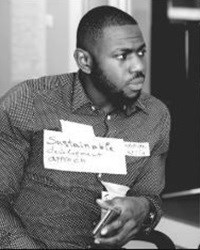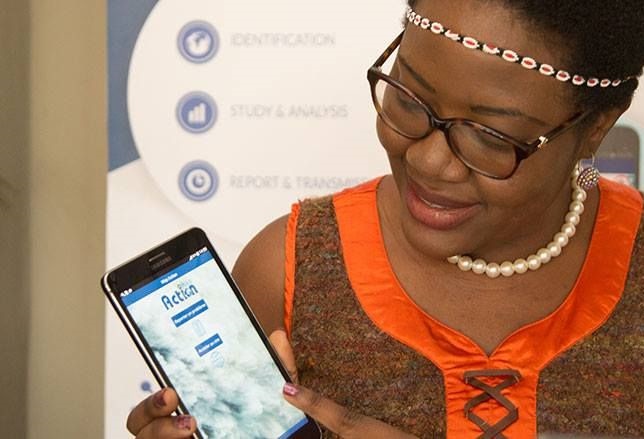Mapping out crucial data at a disaster scene
Which area has been worst affected? Where are the most vulnerable people? What has happened to roads, railways and communication networks? Where are medical supplies and where are they needed most? These are just some of the questions ask when disaster strikes.
This is where Malian startup, Map Action comes in. Map Action recently took part in #Africa4Future, a joint business accelerator of Airbus and GIZ’s Make-IT in Africa initiative, together with the Meltwater Entrepreneurial School of Technology (MEST) Africa, an entrepreneurial training programme, seed fund and Pan-African incubator and Innocircle, the South Africa-based innovation consultancy.

We chat to Boubacar Youssouf, founder and CEO of Map Action, to find out more about the startup journey...
 Can you tell us a bit about Map Action?
Can you tell us a bit about Map Action?
Map Action is a mapping analytics company. We provide real-time interactive map and analytics on environmental problems to highlight their impacts and find the right and sustainable solution to mitigate them.
 When, how and why did you get started?
When, how and why did you get started?
The company started officially about one year ago, in February 2018, with a grant funding from a Dutch organisation called VIA WATER to help with the mitigation of water and sanitation problems in Bamako, Mali.
 What is the core function of Map Action?
What is the core function of Map Action?
Our main focus is on environmental analytics.
 What are some of the obstacles you've had to overcome since starting out?
What are some of the obstacles you've had to overcome since starting out?
The Malian business environment is not the best place for a startup, too many obstacles such as funding, market, etc.
 What advice would you give to other aspiring entrepreneurs?
What advice would you give to other aspiring entrepreneurs?
To believe in themselves and ‘push through’ difficult times.
 What has been your proudest achievements thus far?
What has been your proudest achievements thus far?
Being recognised by the Malian Government as a best young innovative company.
 What does the future of entrepreneurship look like to you?
What does the future of entrepreneurship look like to you?
It's bright, especially in Africa.
 What is the importance of startup accelerator/incubator programes?
What is the importance of startup accelerator/incubator programes?
It helps to grow your business and your network.
 What would you like to see changed in the South African/African startup landscape?
What would you like to see changed in the South African/African startup landscape?
So many things. Starting with governments participation by giving grants and trusting startups.
 What do you believe are the traits an entrepreneur needs in order to succeed?
What do you believe are the traits an entrepreneur needs in order to succeed?
I believe resilience and courage is what is needed to succeed.
 Tell us about your biggest struggles as entrepreneurs, as well as some major highlights.
Tell us about your biggest struggles as entrepreneurs, as well as some major highlights.
My biggest struggle was finding my first client, followed by finding the right team members (I still continue to struggle) and the Malian business environment, which is very hard for an entrepreneur in the country.
 Why would you encourage someone to become an entrepreneur?
Why would you encourage someone to become an entrepreneur?
To have a positive impact on their community and create something that could benefit everybody.
 What is the importance of entrepreneurship?
What is the importance of entrepreneurship?
Entrepreneurship has a big impact on community - it creates jobs and bring innovation.
 Where would you like to see Map Action in the next 5 years?
Where would you like to see Map Action in the next 5 years?
All over Africa and the whole world.
About Evan-Lee Courie
View my profile and articles...